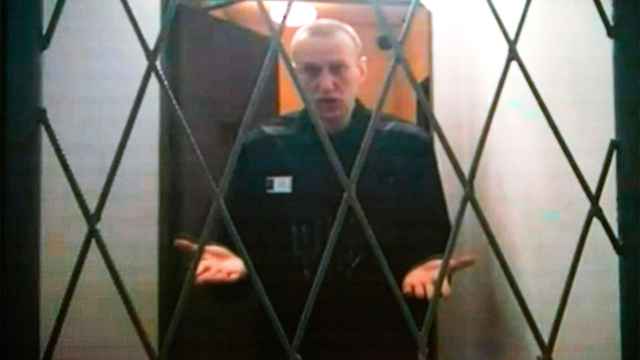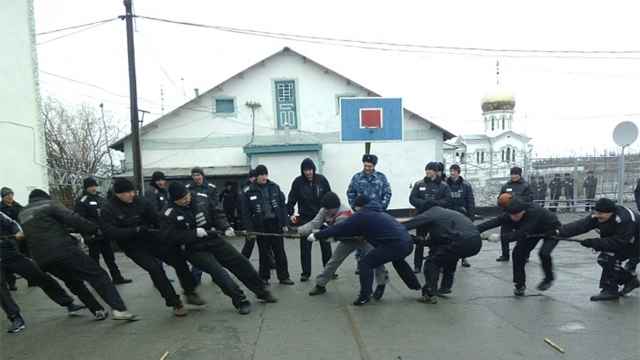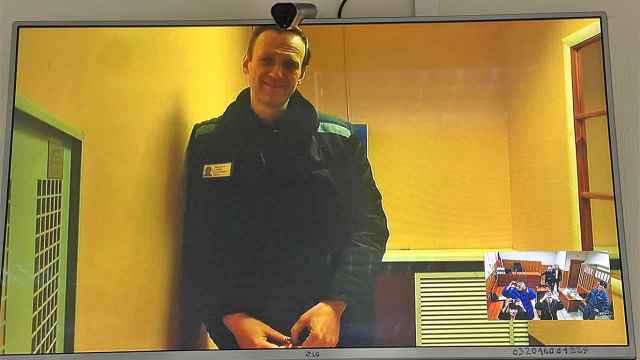Jailed Kremlin critic Alexei Navalny has been transferred from a prison hospital back to his penal colony after receiving treatment following a hunger strike, his allies said Monday.
Navalny was jailed for two and a half years in February on old embezzlement charges he and his supporters say are politically motivated.
He was sentenced shortly after returning to Russia from Germany, where he was receiving treatment for a near-fatal poisoning attack with a nerve agent.
President Vladimir Putin's most outspoken domestic critic declared a hunger strike in March to demand proper medical treatment for a growing list of health complaints, including back pain and numbness in his limbs.
Navalny in April was transferred to a prison hospital in another penal colony as the West warned it would hold the Kremlin responsible for the state of his health.
The opposition politician called off the strike 24 days later.
"Navalny has been transferred back to the Penal Colony No. 2," Navalny's team said on Twitter on Monday.
The prison is located in the town of Pokrov 100 kilometers east of Moscow.
A court in Moscow is considering whether to designate Navalny's political network as an "extremist" organization, which would remove potential challengers to the ruling United Russia party ahead of parliamentary elections in September.
A decision is expected as early as this week.
Last Friday, Putin approved an anti-extremism law expected to be used to ban his allies from running in elections. The Kremlin chief signed off on the legislation the day Navalny marked his 45th birthday behind bars.
Many of his close allies are either outside Russia or under arrest.
On Sunday, prominent Kremlin critic and former opposition lawmaker Dmitry Gudkov said he had left Russia for Ukraine due to pressure from authorities ahead of the elections.
Citing sources close to the Kremlin, Gudkov, 41, said that if he did not leave he would be arrested over a "fake" criminal case against him.
A Message from The Moscow Times:
Dear readers,
We are facing unprecedented challenges. Russia's Prosecutor General's Office has designated The Moscow Times as an "undesirable" organization, criminalizing our work and putting our staff at risk of prosecution. This follows our earlier unjust labeling as a "foreign agent."
These actions are direct attempts to silence independent journalism in Russia. The authorities claim our work "discredits the decisions of the Russian leadership." We see things differently: we strive to provide accurate, unbiased reporting on Russia.
We, the journalists of The Moscow Times, refuse to be silenced. But to continue our work, we need your help.
Your support, no matter how small, makes a world of difference. If you can, please support us monthly starting from just $2. It's quick to set up, and every contribution makes a significant impact.
By supporting The Moscow Times, you're defending open, independent journalism in the face of repression. Thank you for standing with us.
Remind me later.






